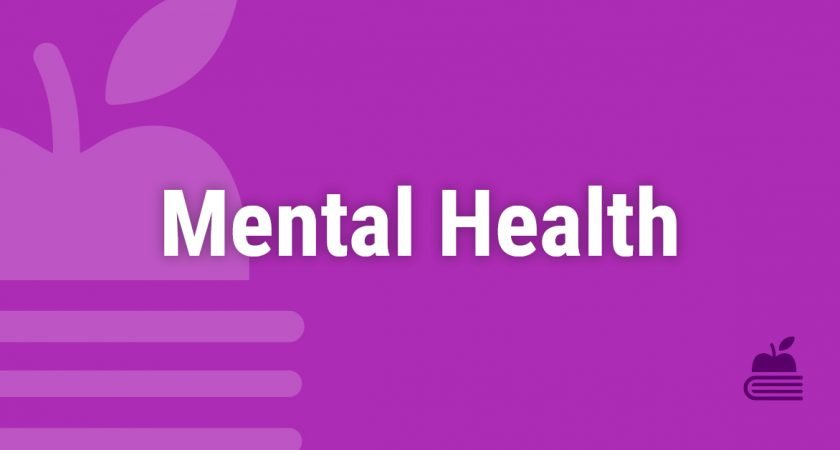Read week
Hi Everyone!
How are you going? I mean, how are you really going? When is the last time you’ve had a real think about your coping, moods and resilience? Are you displaying any physical signs of stress such as tight muscles, nail biting, teeth grinding, elevated heart rate or unexplained fatigue? Take a few minutes now to practice some mindfulness – be present, and let go of the stress that’s binding you up.
This week is about mental health.
One of my most memorable mental health encounters was with a bank manager who came for a few things. I had just learned as a GP registrar to manage time better by taking control of the conversation and re-booking the patient for further discussion if their list was getting too long. Unbeknown to me, the topic the patient was leaving til last was really his most important issue. He had been having panic attacks at work and was desperate for some help. On our first encounter I missed it, and it was only through the good grace of the patient that he returned to our next appointment and finally let it out. I apologised to him, and our therapeutic relationship was restored. We spent many months working together towards restoring his confidence again and returning him to work.
In children, anxiety can masquerade as many things The most common things include abdominal pain and headaches. A full review of the patient for organic causes is obviously very important, but please keep anxiety on the differential list. Explaining anxiety to a child is sometimes complicated, and usually involves various metaphors that they can understand such as “butterflies in the tummy”. Don’t be afraid to refer young people with mental health issues early. Headspace is an excellent resource for young people.
Completion of the Mental Health Care Plan is a common request in a GP setting. It takes a minimum of 20 minutes, but really should take a good 45 minutes to complete. A good plan will cover the patients childhood, family structure, family history of mental illness, substance abuse, hospitalisations and medications tried. The Mental Health Care Plan can be completed over a series of sessions where time accumulates towards the total amount which is only billed once the plan is completed (2715 or 2717). This allowed access for psychologist to access MBS funding for counselling sessions. A review of Mental Health Care Plan (2712) can also be billed – I tend to do this at the 1 month mark.
Look after yourself, and keep remember that your mental health is just as important as your physical health.
Dr Andrew Harris
Director of Amadeus Education.
Did you know?
According to BEACH data, 8.1% of all encounters in General Practice were specifically related to psychological issues. Consider this as you are preparing for your exams. (Source: General practice activity in Australia: 2015-16. https://bit.ly/2c4d8Em)
Presenting complaints:
These are the common presenting complaints that should be covered for this topic:
- Amnesia, total or partial (https://bit.ly/2CmOBUe)
- Antisocial behaviour in adults (https://bit.ly/2RxN2Ny)
- Disturbed or agitated patient (https://bit.ly/2AOfL6t)
- Hallucinations (https://bit.ly/2SXPp98)
- Insomnia (https://bit.ly/2T2PUip)
- Tiredness/chronic fatigue (https://bit.ly/2Fruqby)
Common conditions:
These are the common conditions that should be reviewed for this topic:
Topics | Important reading |
Depression (BEACH) |
|
Bipolar |
|
Suicide |
|
Anxiety (BEACH) |
|
PTSD |
|
Psychosis – including peurperal psychosis, schizophrenia |
|
Borderline personality |
|
ADHD |
|
Gambling |
|
Drug abuse – alcohol, cigarettes, illicit drugs, |
|
Child abuse, Domestic violence |
|
Eating disorders – including bulimia nervosa, anorexia nervosa |
|
OCD |
|
Stress |
|
Therapies |
|
Teenage mental health | Headspace psycholosocial assessment for young people. Headspace. (https://bit.ly/2Kl96b2) |
Medication doses:
These are the medications and doses that should be learned for the exam:
Condition | Medication |
Depression/Anxiety | Sertraline 50mg mane Escitalopram 10mg mane Venlafaxine CR 75mg mane Mirtazapine 15-30mg nocte Diazepam 5mg 1-2 times daily PRN for a short period only. |
Mnemonics:
These are some important mnemonics relevant to this topic:
- DASS21 (https://bit.ly/2MpO3Ao)
- HEADSS (https://bit.ly/2Inuiuu)
K10 (https://bit.ly/2UvRxcR)
CHECKS:
Here are the list of recommended Checks that would be useful in your study for GP exams (accessed via subscription from http://gplearning.racgp.org.au):
- Mental health, November 2016
- Addictions, November 2015
- Depression, January 2013
- Bipolar Disorders, March 2011
Focus on clinical skills:
Here is a brief focus on some OSCE preparation topics related to this topic:
- Managing difficult patient
- HEADSS
- Smoking counselling
- Assessment and management of depression or anxiety.
- Suicide risk assessment
Focus on medicolegal:
Here is a brief focus on the medicolegal issues covered in Australian Family Physician:
- Capacity to consent to treatment. April 2011. (https://bit.ly/2Hrtg1Q)
Copyright © 2021 Andrew Harris

